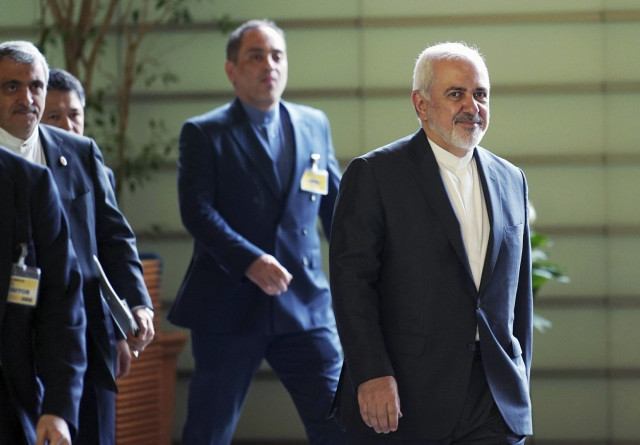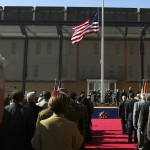 Ukraine reports 5,276 new COVID-19 cases
Ukraine reports 5,276 new COVID-19 cases
 Zelensky: Every third Ukrainian considers road construction one of greatest achievements of 2021
Zelensky: Every third Ukrainian considers road construction one of greatest achievements of 2021
 Ukraine ready to implement Minsk agreements, but Russia's desire needed - Yermak
Ukraine ready to implement Minsk agreements, but Russia's desire needed - Yermak
 Michel: EU unanimously agree to roll over economic sanctions against Russia
Michel: EU unanimously agree to roll over economic sanctions against Russia
 Actions by Ukraine's partners will help prevent worst-case scenario - Zelensky
Actions by Ukraine's partners will help prevent worst-case scenario - Zelensky
 COVID-19 in Ukraine: Health officials confirm 8,899 daily cases as of Dec 17
COVID-19 in Ukraine: Health officials confirm 8,899 daily cases as of Dec 17
 Macron tells Zelensky he declared support for Ukraine in call with Putin
Macron tells Zelensky he declared support for Ukraine in call with Putin
 Zelensky, Scholz discuss gas transit through Ukraine after 2024
Zelensky, Scholz discuss gas transit through Ukraine after 2024
 Ukraine ready for any format of talks with Russia - Zelensky
Ukraine ready for any format of talks with Russia - Zelensky
 Ukraine’s only journalist in Russia facing extremism charges - lawyer
Ukraine’s only journalist in Russia facing extremism charges - lawyer
 PM Shmyhal: First two applications for investment projects worth $96 million filed
PM Shmyhal: First two applications for investment projects worth $96 million filed
 Zelensky, PM of Italy discuss security situation around Ukraine
Zelensky, PM of Italy discuss security situation around Ukraine
 President signs off State Budget 2022
President signs off State Budget 2022
 London considering all options for responding to Russia's aggression against Ukraine
London considering all options for responding to Russia's aggression against Ukraine
 Putin, Biden to hold another round of talks
Putin, Biden to hold another round of talks
 Some 260,000 Ukrainians “victims of human trafficking” over 30 years - prosecutor general
Some 260,000 Ukrainians “victims of human trafficking” over 30 years - prosecutor general
 Ukraine plans to create center to protect energy infrastructure from cyber attacks
Ukraine plans to create center to protect energy infrastructure from cyber attacks
 No clear idea so far when Normandy Four top diplomats set to meet - German Ambassador
No clear idea so far when Normandy Four top diplomats set to meet - German Ambassador
 Ukraine receives EUR 600M in macro-financial assistance from EU
Ukraine receives EUR 600M in macro-financial assistance from EU
 Zelensky holds phone conversation with PM of Israel
Zelensky holds phone conversation with PM of Israel
 Ukraine sets new daily COVID vaccination record
Ukraine sets new daily COVID vaccination record
 MFA: European Union has not yet removed Ukraine from list of safe countries
MFA: European Union has not yet removed Ukraine from list of safe countries
 Kyiv records 1,023 new COVID-19 cases, 29 deaths
Kyiv records 1,023 new COVID-19 cases, 29 deaths
 G7 ambassadors welcome adoption of law on NABU status
G7 ambassadors welcome adoption of law on NABU status
 Ukraine can increase Covid vaccination rates to 1.5M a week – Liashko
Ukraine can increase Covid vaccination rates to 1.5M a week – Liashko
Iran’s foreign minister on Thursday slammed mounting U.S. sanctions imposed on Tehran by the Trump administration as “unacceptable,” even as he insisted that his country is committed to an international nuclear deal that has steadily unraveled amid rising tensions in the Mideast.
Recent days have seen allegations of sabotage attacks targeting oil tankers off the coast of the United Arab Emirates, a drone attack on a Saudi oil pipeline claimed by Yemen’s Iranian-allied rebels, and the dispatch of U.S. warships and bombers to the region.
Early Thursday, residents in Yemen’s capital of Sanaa said a wave of airstrikes by the Saudi-led coalition hit rebel Houthi targets, as well as a residential house in the city. There were casualties, including civilians, the residents said without providing details. They spoke on condition of anonymity fearing for their safety.
Saudi Arabia has been at war with the Houthis since 2015, leading a mostly Arab coalition that’s launching near-daily airstrikes in support of the internationally recognized Yemeni government. The drone attacks on a Saudi pipeline Tuesday that were claimed by the Houthis marked one of the rebels’ deepest and most significant strikes inside Saudi territory since the conflict began.
At the root of the recent spike in Persian Gulf tensions appears to be President Donald Trump’s decision a year ago to pull the U.S. from Iran’s nuclear deal with world powers, embarking on a maximalist sanctions campaign against Tehran to cripple the country’s economy.
In response, Iran’s supreme leader issued a veiled threat Tuesday, saying it wouldn’t be difficult for the Islamic Republic to enrich uranium to weapons-grade levels. He also said that while his country would not negotiate with the United States, Iran is not seeking war.
On Wednesday, the U.S. State Department ordered all nonessential government staff to leave Iraq, and Germany and the Netherlands both suspended their military assistance programs in the country in the latest sign of tensions.
The movement of diplomatic personnel is often done in times of conflict, but what is driving the decisions from the White House remains unclear. Iraq is home to powerful pro-Iranian militias, while also hosting more than 5,000 US troops. The U.S. military’s Central Command said its troops were on high alert, without elaborating.
Last week, U.S. officials said they had detected signs of Iranian preparations for potential attacks on U.S. forces and interests in the Middle East, but Washington has not publicly provided any evidence to back up claims of an increased Iranian threat.
But a senior British officer in the U.S.-backed coalition fighting the Islamic State group appeared to push back against the U.S. claims, telling reporters earlier in the week that there’d been no increased threat from Iranian-backed forces in Iraq and Syria. Maj. Gen. Chris Ghika’s comments exposed international skepticism over the American military buildup.
On a visit to Tokyo on Thursday, Iranian Foreign Minister Mohammad Zarif told his Japanese counterpart Taro Kono that his country’s response to the U.S. actions — America’s pullout from the nuclear deal last year and the imposition of U.S. sanctions — is within Iran’s rights.
Iran recently threatened it might resume higher enrichment by July 7, beyond the level permitted by the current deal between Tehran and world powers. The U.S. pulled out of the deal last year, re-imposing sanctions that would penalize countries and global companies that do business with Iran.
Kono expressed concern over the rising tension in the Middle East, and urged Zarif to use restraint and keep implementing the nuclear agreement.
Though Iran maintains its nuclear program is for peaceful purposes, scientists say the time needed to reach the 90% threshold for weapons-grade uranium is halved once uranium is enriched to around 20%.
Late Wednesday, Anwar Gargash, the UAE minister of foreign affairs, said the Saudi-led coalition would “retaliate hard” for attacks on civilian targets, without elaborating.
However, he also said the UAE is “very committed to de-escalation” after the alleged sabotage of oil tankers off the country’s coast on Sunday. Gargash declined to directly blame Iran for the attack, though he repeatedly criticized Tehran.













































































































































